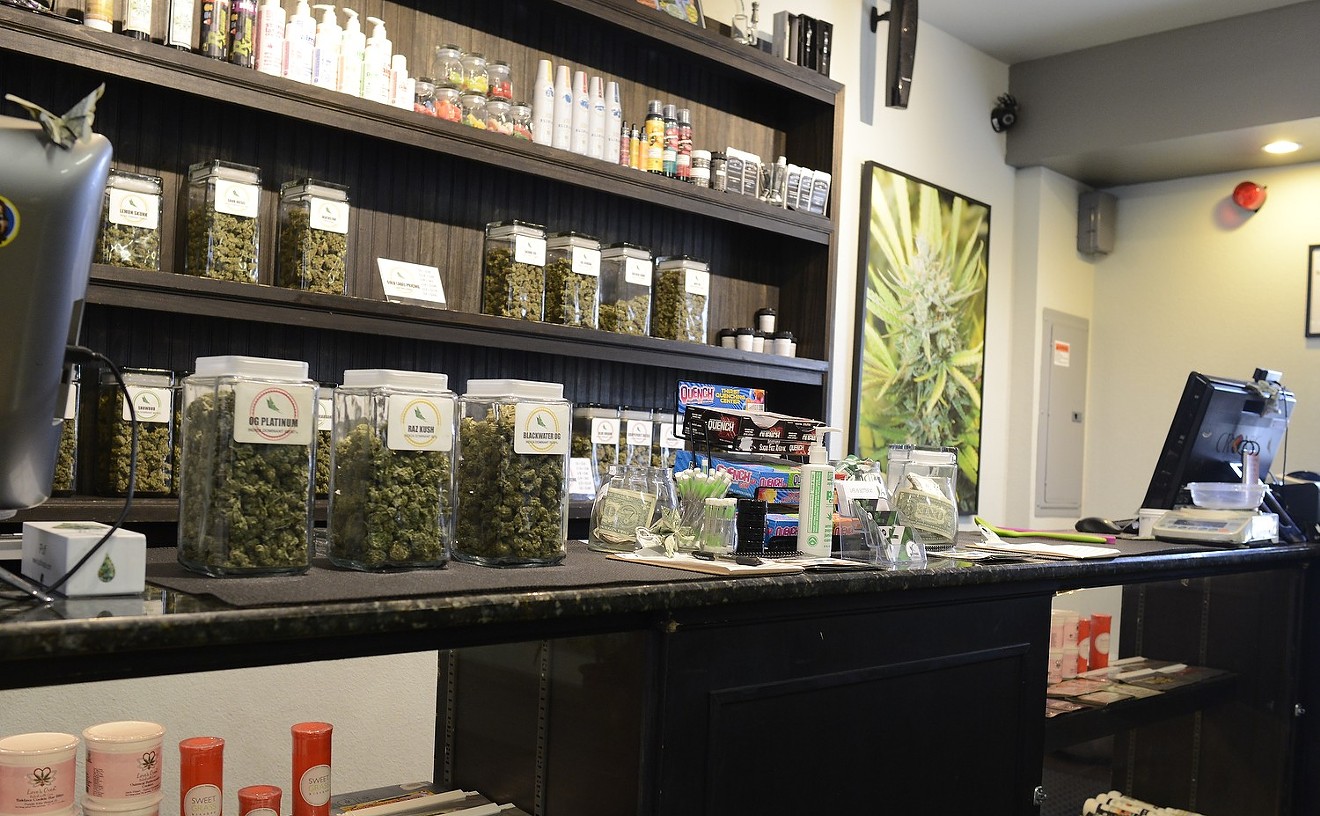As Colorado approaches the five-year mark since recreational cannabis sales started in January 2014, and as our state’s maturing marijuana market continues breaking sales and tax records, now is a good time to reflect on the ways tax revenue from regulated sales of cannabis have made Colorado a better place to live.
We’ve seen a steady upward trajectory in revenue for the state’s coffers: In 2014, Colorado collected nearly $67.6 million in taxes and licensing fees associated with medical and adult-use cannabis. By 2017, that number had more than tripled to upwards of $247 million in government revenue. And 2018 totals are on track to beat last year’s, with revenue for January-September already surpassing $200 million.
All told, between January 2014 and September 2018, the State of Colorado has collected nearly $840 million in revenue from the regulated marijuana market, according to the Department of Revenue — and that doesn’t even count the millions more raised by city- and county-specific taxes.
That’s good news for many people across our state who are benefiting from the services and programs that marijuana revenues are helping to fund.
Here are five particularly notable areas where marijuana tax money is helping Coloradans:
Public Education
A large portion of revenue Colorado collects through the Marijuana Tax Cash Fund and excise taxes are earmarked for public education. Considering Colorado ranked among the bottom 10 in the U.S. for school finance and received a “D+” from the Education Week Research Center in a January 2018 analysis, any revenues that help fund Colorado’s school system are a good thing.
In 2017 alone, more than $100 million in marijuana tax dollars went to public schools, helping to fund construction projects and programs like the School Health Professionals Grant, which supports schools in hiring nurses, psychologists, social workers and counselors to provide critical treatment to students with substance abuse problems and other behavioral health needs. Marijuana revenues also went to early literacy programs, school bullying prevention and dropout prevention, among other initiatives.
Drug Safety, Abuse Prevention and Treatment
Marijuana revenues have also been going toward supporting substance abuse prevention for adults and youths, and treatment programs across the state, as well as Colorado’s Good to Know education campaign. This money is helping to ensure that cannabis consumers — whether they’re residents or among the many tourists visiting annually — can gain a firm understanding of the laws and best-use FAQs for safe, legal and responsible consumption.
Mental Health Services
Millions of dollars from Colorado’s marijuana tax revenue are also helping fund our state’s mental health system, with special focus on reducing the reliance on the criminal justice system for handling mental health-related crises, as well as building new facilities in rural areas lacking adequate access to services.
For years, Colorado had relied on millions of dollars from tobacco lawsuit settlements to support numerous mental health programs in the state. Since that money is nearly dried up, revenue from legal marijuana sales has been a vital pipeline for funding mental health services in the criminal justice system for juvenile and adult offenders, as well as providing services for children under the Colorado Child Mental Health Treatment Act.
Affordable Housing
Cities like Denver are using cannabis taxes to boost efforts to create more affordable housing and reduce homelessness. City leaders recently passed a measure that will use revenues from a marijuana tax increase to help double the Affordable Housing Fund — from $15 million to $30 million — and build more than 6,000 affordable family homes over the next five years.
Cracking Down on Illegal Markets
Colorado sets aside nearly $6 million each year in marijuana revenues to combat the illegal cannabis market and reimburse law enforcement for their investigations into illicit operations. This is an important step in efforts to quash illicit markets. Illegal operators pose a risk to public safety and public health, and they undermine the lawful operations of the regulated cannabis market.
Beyond the above benefits, over the past five years, millions of dollars have been used to help bolster scientific research on cannabis and collect valuable data on our state’s populace through the Healthy Kids Colorado Survey and other health polls.
While some have scoffed at the amount of revenue generated by a legal cannabis market being a drop in the bucket compared with the state’s massive annual budget needs, it’s important to remember these tax dollars from cannabis are nevertheless having a real impact — especially because a majority of these tax dollars didn’t even exist five years ago.
Dahlia Mertens is the founder and CEO of Mary Jane’s Medicinals, a cannabis topicals company practicing natural, whole-plant infusion at its Telluride production facility since 2009.
Westword occasionally publishes op-eds on matters of interest to metro Denver readers. Have one you'd like to submit? Send it to [email protected].
[
{
"name": "Air - MediumRectangle - Inline Content - Mobile Display Size",
"component": "12017618",
"insertPoint": "2",
"requiredCountToDisplay": "2"
},{
"name": "Editor Picks",
"component": "17242653",
"insertPoint": "4",
"requiredCountToDisplay": "1"
},{
"name": "Inline Links",
"component": "18838239",
"insertPoint": "8th",
"startingPoint": 8,
"requiredCountToDisplay": "7",
"maxInsertions": 25
},{
"name": "Air - MediumRectangle - Combo - Inline Content",
"component": "17261320",
"insertPoint": "8th",
"startingPoint": 8,
"requiredCountToDisplay": "7",
"maxInsertions": 25
},{
"name": "Inline Links",
"component": "18838239",
"insertPoint": "8th",
"startingPoint": 12,
"requiredCountToDisplay": "11",
"maxInsertions": 25
},{
"name": "Air - Leaderboard Tower - Combo - Inline Content",
"component": "17261321",
"insertPoint": "8th",
"startingPoint": 12,
"requiredCountToDisplay": "11",
"maxInsertions": 25
}
]












